The recent directive by the district administration in Maihar, Madhya Pradesh, to prohibit the sale of meat, fish, and eggs during the nine-day Navratri festival has reignited a contentious debate on the intersection of religious practices, individual freedoms, and state intervention in India. Union Minister Chirag Paswan’s candid remarks on this issue have further fueled discussions, highlighting the delicate balance between respecting religious sentiments and upholding constitutional rights.
Chirag Paswan’s Perspective
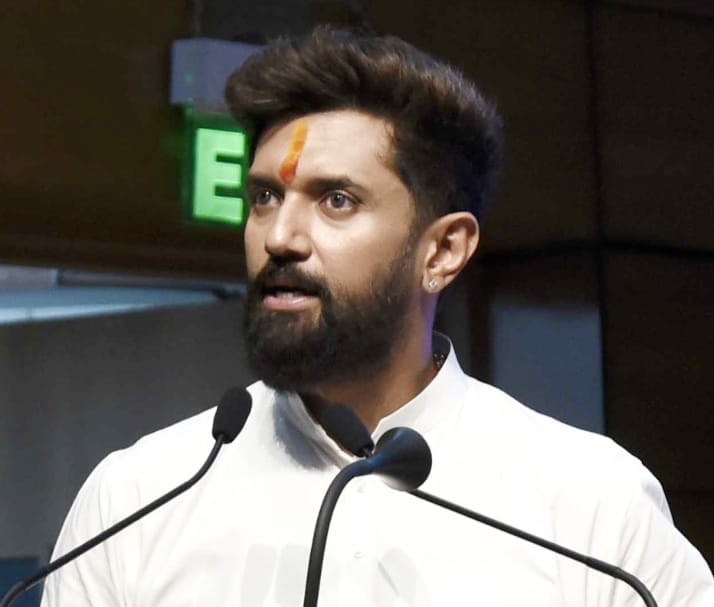
Addressing the controversy following a National Democratic Alliance (NDA) meeting, Chirag Paswan criticized the politicization of religious issues, labeling such discussions as “trash talk.” He emphasized that for centuries, individuals of diverse faiths in India have coexisted peacefully, maintaining brotherhood and simplicity in their interactions. Paswan asserted that 90% of societal issues could be resolved if religious organizations refrained from protecting political parties and if politicians abstained from interfering in matters of faith. He highlighted that controversies often arise when politics intertwines with religion, leading to unnecessary disputes.
The Constitutional Conundrum
The imposition of meat bans during religious festivals raises significant constitutional questions. Article 21 of the Indian Constitution guarantees the right to personal liberty, which encompasses an individual’s choice of food. Furthermore, Article 19(1)(g) ensures the freedom to practice any profession or to carry on any occupation, trade, or business. Restricting the sale of meat during specific periods can be perceived as an infringement on these fundamental rights. The Supreme Court of India has previously underscored the importance of individual choice in matters of food consumption, emphasizing that such choices fall within the realm of personal liberty.
Impact on Livelihoods and Minority Communities
Beyond constitutional implications, meat bans during festivals have tangible economic consequences, particularly for minority communities. In states like Uttar Pradesh, a significant proportion of butchers and meat sellers are Muslims, with many Dalits engaged in related occupations. Temporary prohibitions on meat sales disrupt their livelihoods, exacerbating economic vulnerabilities. Such measures, ostensibly aimed at respecting religious sentiments, inadvertently marginalize communities that rely on meat-related trades for their sustenance.
The Prevalence of Non-Vegetarianism in India
Contrary to the perception of India as a predominantly vegetarian nation, data indicates otherwise. According to the National Family Health Survey (NFHS-5), a substantial majority of Indian men (83.2%) and women (71.8%) consume non-vegetarian food. This statistic challenges the rationale behind imposing meat bans during festivals, as such prohibitions do not align with the dietary habits of a significant portion of the population.
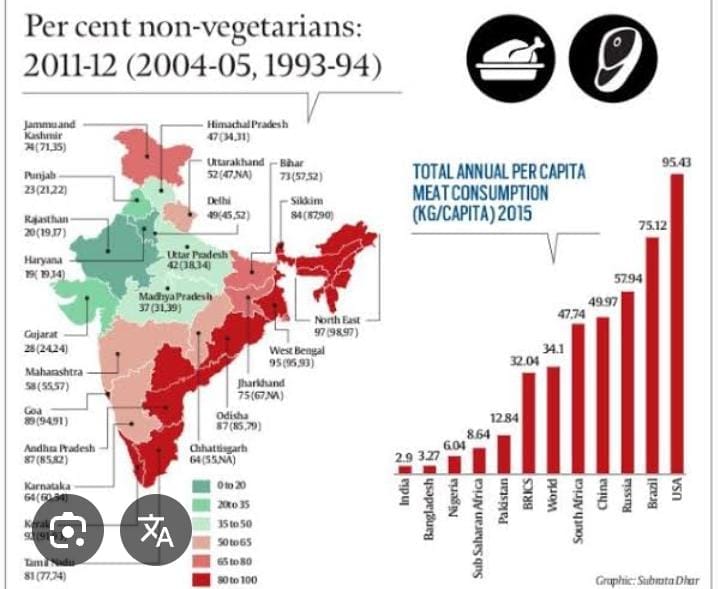
Political Exploitation of Religious Sentiments
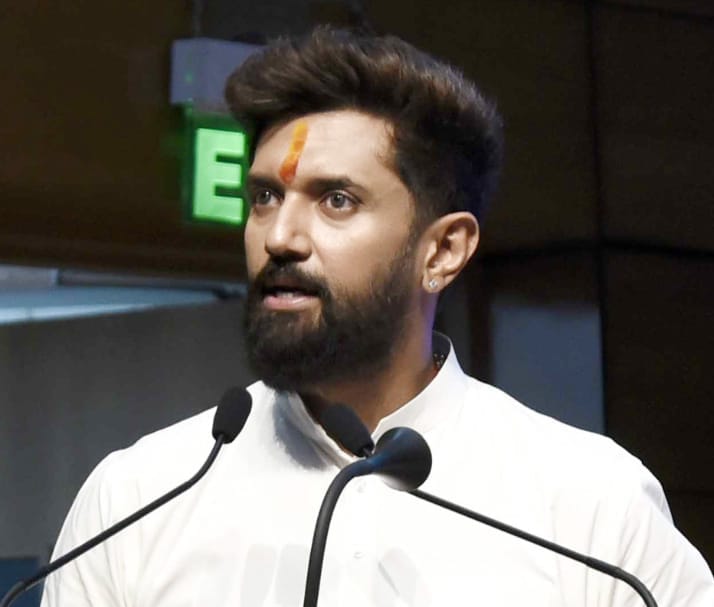
The intertwining of politics and religion in India is not a novel phenomenon. Various political entities have historically leveraged religious sentiments to further their agendas. For instance, right-wing organizations like the Bajrang Dal and Vishwa Hindu Parishad have advocated for meat bans during Navratri, asserting that open sale of meat offends religious sensibilities. Such actions, while purportedly aimed at honoring religious practices, often serve to polarize communities and divert attention from pressing socio-economic issues.
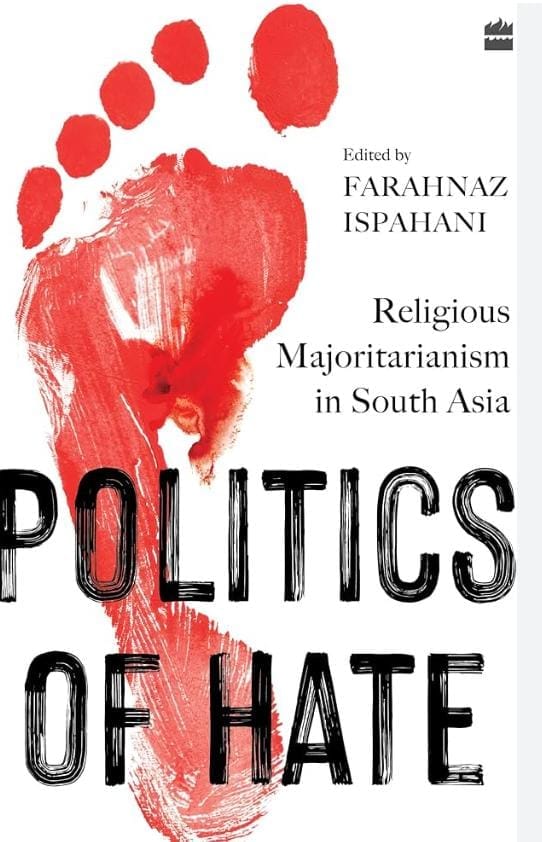
The Case of Delhi’s Meat Shop Closures
A pertinent example of the contentious nature of meat bans during religious festivals is the directive issued in South Delhi. In April 2022, the South Delhi Municipal Corporation (SDMC) mayor announced that meat shops should remain closed during the “auspicious period of Navratri devoted to Goddess Durga,” citing that most people abstain from non-vegetarian food during this time. This move was met with criticism from various quarters, including Trinamool Congress MP Mahua Moitra, who emphasized that the Constitution allows individuals the freedom to eat meat whenever they choose and grants shopkeepers the right to conduct their business.
The Gujarat Experience
Gujarat presents another instance where meat bans have been implemented, leading to significant discourse. In the town of Palitana, a blanket ban on the sale and consumption of non-vegetarian food was enforced, influenced by the Jain community’s sentiments, as the town is a prominent Jain pilgrimage site. This action not only affected the dietary choices of the residents but also had economic implications for those involved in the meat trade. Such measures highlight the complexities involved when religious sentiments influence administrative decisions, often leading to the marginalization of certain communities and infringement on personal liberties.
The Way Forward: Embracing Pluralism
India’s rich tapestry of cultures and religions necessitates an approach that respects diverse practices while safeguarding individual freedoms. Imposing blanket bans on meat sales during specific festivals not only infringes upon personal liberties but also disrupts the livelihoods of many. A more balanced approach would involve designating specific areas where meat sales are restricted, such as near temples or other places of worship, while allowing businesses to operate freely elsewhere. This strategy would honor religious sentiments without encroaching upon individual rights or economic activities.
Conclusion
Chirag Paswan’s remarks serve as a poignant reminder of the perils of intertwining politics with religion. While it is essential to respect and honor religious practices, it is equally crucial to uphold the constitutional rights that form the bedrock of India’s democracy. By fostering an environment of mutual respect and understanding, and by disentangling political agendas from religious affairs, India can aspire towards a more inclusive and harmonious society.
is it ok to eat meat during navratri ?
Whether it is okay to eat meat during Navratri depends on personal beliefs and cultural traditions. Many Hindus, especially in North India, follow a strict vegetarian diet during these nine days as a mark of devotion to Goddess Durga. However, in states like West Bengal and Assam, eating meat during Navratri is common, even among Hindus. There is no religious law enforcing vegetarianism, and food choices should remain a personal decision. Imposing meat bans in public spaces often leads to unnecessary controversies, as India is a diverse country with varied dietary habits. Ultimately, the decision should be left to individuals.
is meat ban on Ram Navami ?
Meat bans on Ram Navami vary across different states and cities in India. While there is no nationwide law mandating a ban, some local governments impose restrictions on the sale of meat and alcohol as a mark of respect for the Hindu festival celebrating Lord Ram’s birth. Cities like Delhi, Mumbai, and Ahmedabad have witnessed temporary meat shop closures on this day. However, such bans are controversial, as India has a diverse population with different dietary habits. Critics argue that food choices should remain a personal freedom rather than being dictated by religious sentiments or government orders.
is meat allowed in Gita ?
The Bhagavad Gita does not explicitly prohibit or promote eating meat. However, it categorizes food based on the three gunas (qualities) and emphasizes sattvic (pure) food, which is vegetarian, as ideal for spiritual growth.
Key References in the Gita:
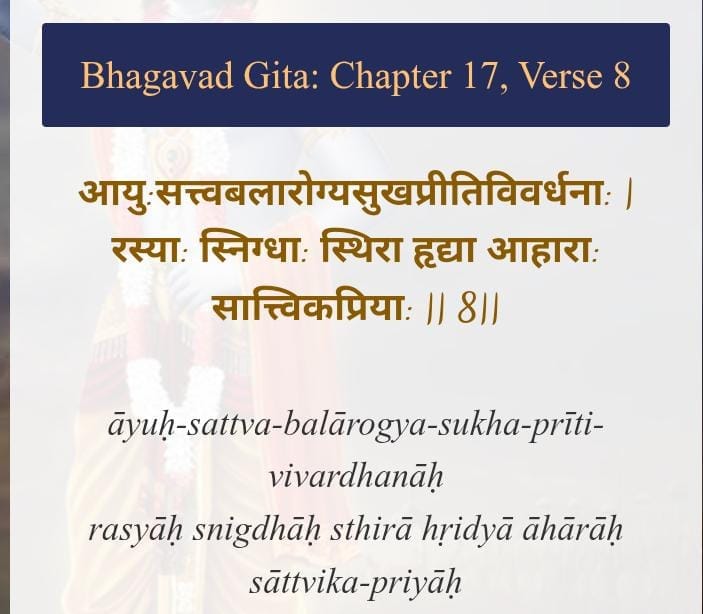
- Sattvic food (pure, vegetarian, nourishing): Krishna says such food increases longevity, strength, and happiness (Bhagavad Gita 17.8).
- Rajasic food (spicy, bitter, stimulating): Leads to passion and restlessness (17.9).
- Tamasic food (stale, impure, heavy): Causes ignorance and lethargy (17.10).
While the Gita does not outright ban meat, it encourages sattvic eating for spiritual advancement. Whether meat is allowed depends on personal interpretation and tradition.
is meat banned in Ayodhya ?
Yes, meat is banned in Ayodhya, as it is considered a sacred city associated with Lord Ram. The Uttar Pradesh government imposed restrictions on the sale and consumption of meat and alcohol within the city limits to preserve its religious significance. However, enforcement varies, and some outskirts may still permit sales.